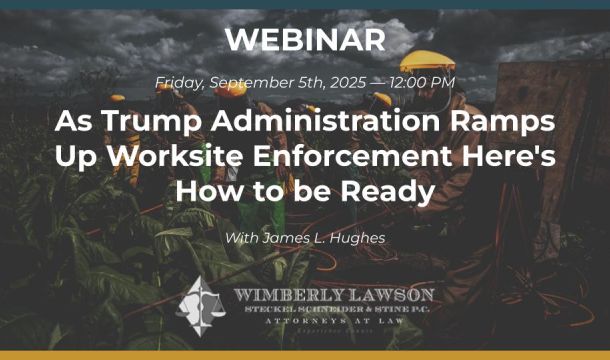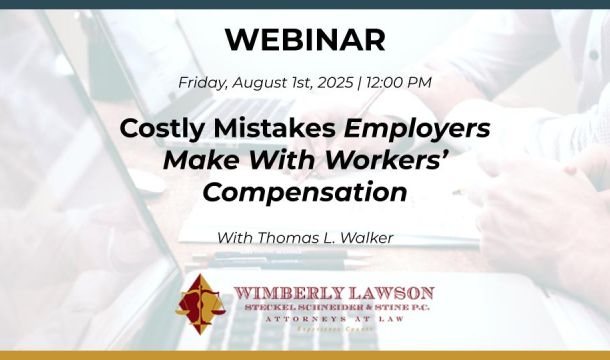How or when do employers record incidents of COVID-19 on their OSHA 300 logs? On April 10, OSHA issued Enforcement Guidance for Recording Cases of Coronavirus Disease 2019 (COVID-19) to help answer that question.
Under OSHA’s recordkeeping requirements, COVID-19 is a recordable illness, and employers are responsible for recording cases of COVID-19, if:
(1) the case is a confirmed case of COVID-19, as defined by Centers for Disease Control and Prevention (CDC);
(2) the case is work-related as defined by 29 CFR § 1904.5; and
(3) the case involves one or more of the general recording criteria set forth in 29 CFR § 1904.7 (an injury or illness that results in any of the following: death, days away from work, restricted work or transfer to another job, medical treatment beyond first aid, or loss of consciousness).
How does an employer figure out if a case of COVID-19, which is highly contagious, is work-related? The good news is that the majority of employers will not need to make that determination. Only employers of workers in the healthcare industry, emergency response organizations (e.g., emergency medical, firefighting, and law enforcement services), and correctional institutions must continue to make work-relatedness determinations pursuant to 29 CFR § 1904. Until further notice, however, OSHA will not enforce 29 CFR § 1904 to require other employers to make the same work-relatedness determinations, except where:
- There is objective evidence that a COVID-19 case may be work-related. This could include, for example, a number of cases developing among workers who work closely together without an alternative explanation; and
- The evidence was reasonably available to the employer, whatever that means. OSHA offers examples of “reasonably available evidence” to include information given to the employer by employees, as well as information that an employer learns regarding its employees’ health and safety in the ordinary course of managing its business and employees. In other words, if an employer knows that it has a sick employee who is making other employees sick, this may apply. As a practical matter, however, it is going to be very difficult to pinpoint where and when a specific person was exposed to the virus.
According to OSHA, this new enforcement policy will help employers focus their response efforts on implementing good hygiene practices in their workplaces, and otherwise mitigating COVID-19’s effects, rather than on making difficult work-relatedness decisions in circumstances where there is community transmission.
OSHA also advises that COVID-19 is a respiratory illness and should be coded as such on the OSHA Form 300. Because this is an illness, if an employee voluntarily requests that his or her name not be entered on the log, the employer must comply as specified under 29 CFR § 1904.29(b)(7)(vi).

Kathleen J. Jennings is a former principal in the Atlanta office of Wimberly, Lawson, Steckel, Schneider, & Stine, P.C. She defends employers in employment matters, such as sexual harassment, discrimination, Wage and Hour, OSHA, restrictive covenants, and other employment litigation and provides training and counseling to employers in employment matters.
Related Content
Get Email Updates
Recent Content

As the Trump Administration Ramps Up Worksite Enforcement, Here's How to Be Ready

How to Audit Employment Discrimination Laws Compliance

TPS Update (As of 6/17/2025)

TPS Designation for Honduras and Nicaragua Automatically Extended, But the Date is Uncertain

President Trump Discourages Criminal Enforcement of Agency Rules



